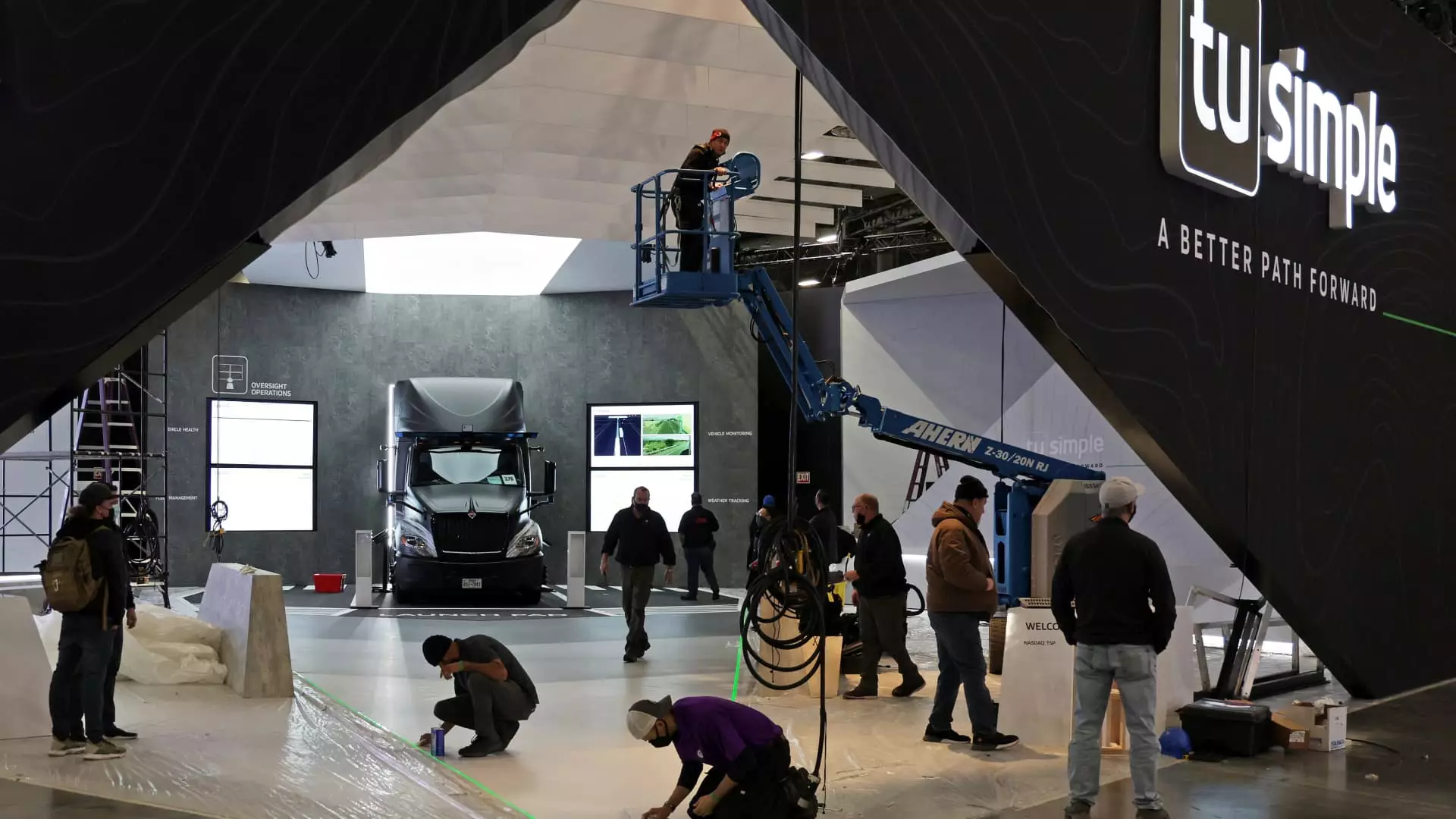The landscape of autonomous technology has seen turbulent shifts recently, with companies facing both formidable challenges and innovative opportunities. An emblematic case is the rebranding of TuSimple, an enterprise initially known for its ambitions in autonomous trucking, to CreateAI, a firm that is now pivoting towards the vibrant arenas of video games and animation. This significant transformation reflects not only a strategic redirection in response to market dynamics but also an effort by the company to reclaim its viability in the tech sector.
The rebranding from TuSimple to CreateAI comes at a time when the self-driving vehicle industry is undergoing a major shake-up. Recent developments saw GM shut down its Cruise robotaxi business, illustrating the high-stakes volatility within the sector. TuSimple’s history also bears the weight of scrutiny; faced with safety concerns and steep financial issues—such as a $189 million settlement in a securities fraud case and the critical loss of its Nasdaq listing—Change was not merely optional but essential.
CEO Cheng Lu, reinstated as the company’s leader after a brief departure, undeniably finds himself at the helm during a pivotal period of metamorphosis. His optimism about achieving a break-even point by 2026, fueled by the anticipated success of a video game based on revered martial arts novels by Jin Yong, highlights a forward-thinking ambition to embrace new verticals that promise profitability. The initial versions of this game, coinciding with the company’s rebranding efforts, epitomize a strategy that aims to chart a new course within digital entertainment.
Amidst the bold statements regarding revenue forecasts—predicted to reach “several hundred million” by 2027—the reality of past financial performances cannot be overlooked. As TuSimple transitioned into CreateAI, it reported a loss of $500,000 in early 2023 and substantial expenditures of $164.4 million on research and development. These figures raise questions about sustainability and the ability of the new narrative to resonate with investors, who will undoubtedly keep a keen eye on the company’s financial trajectory amid the transition.
Cheng’s aspirations are bolstered by a noteworthy partnership with Mo Chen, co-founder of TuSimple, who has established connections with the Jin Yong family. This linkage opens up potential avenues for storytelling through animated features and video games that tap into culturally rich narratives, promising a unique flavor in the crowded entertainment market.
A striking aspect of CreateAI’s transformation is its commitment to generative AI technologies, which serve as the backbone for their new digital ventures. With the debut of an open-source AI model named Ruyi, accessible on the Hugging Face platform, CreateAI illustrates its dedication to intersecting AI with creative processes, aiming to drive innovation in the gaming sector.
Cheng’s assertion that the company could reduce production costs for high-quality games—so-called triple-A titles—by up to 70% over the next five to six years is particularly bold. This declaration positions CreateAI as a potentially disruptive player in the gaming industry, where high production costs have traditionally been a barrier to new entrants. However, the execution of this vision hinges on the effective integration of technology with creative content—a challenge that involves not just technical expertise but also an understanding of market trends and consumer preferences.
As CreateAI charts its new territory, it faces additional hurdles. U.S. government restrictions on Chinese companies’ access to advanced technology, especially semiconductors crucial for AI development, pose significant roadblocks. Cheng’s reassurance about using a blend of U.S. and non-U.S. cloud service providers mitigates some concerns, yet the uncertainty around international trade politics continually looms large.
Investors and stakeholders will likely focus on how CreateAI navigates these complexities while advancing its vision. The annual shareholders meeting will serve as a crucial platform for Cheng and his management team to articulate their strategy and secure the confidence of shareholders in the new direction.
In summation, the transition from TuSimple to CreateAI represents a courageous pivot in response to the self-driving industry’s constriction while exploring the flourishing realms of animation and video gaming. The path forward is fraught with challenges, yet Cheng’s ambition and the promising potential of generative AI may just pave the road to a revitalized future as the company attempts to recapture the imaginations—and investments—of its stakeholders.

